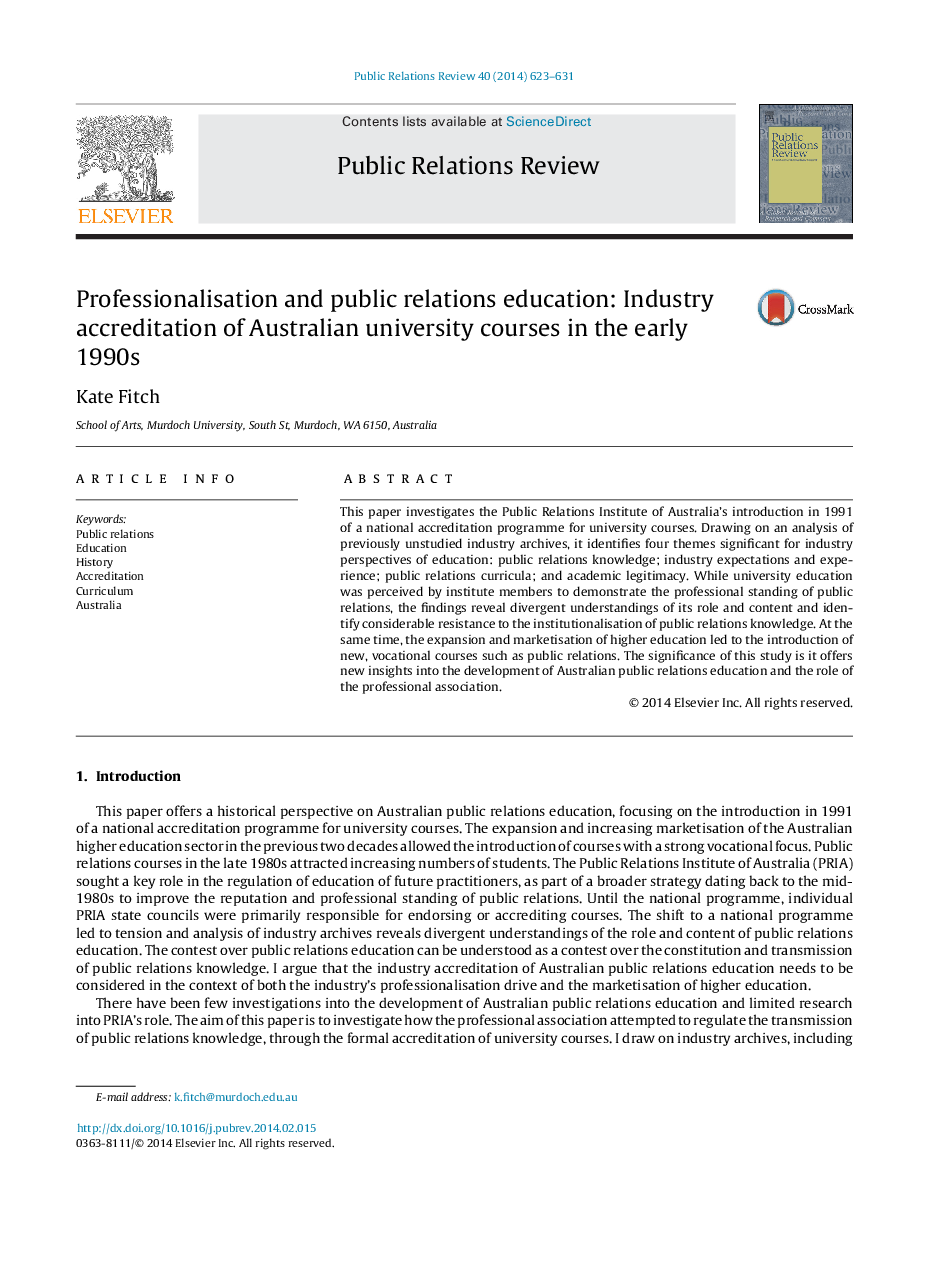| کد مقاله | کد نشریه | سال انتشار | مقاله انگلیسی | نسخه تمام متن |
|---|---|---|---|---|
| 139068 | 162480 | 2014 | 9 صفحه PDF | دانلود رایگان |
• I analyse professional association archives regarding the accreditation of Australian university courses and consider the historical context.
• I argue accreditation of university courses is a professionalisation strategy, which defines suitable curricula from the industry perspective.
• I found divergent industry perspectives on the role and content of public relations education and contested understandings of public relations knowledge.
• I conclude the expansion of the higher education sector and the success of communication studies contributed to the development of public relations education in Australia.
This paper investigates the Public Relations Institute of Australia's introduction in 1991 of a national accreditation programme for university courses. Drawing on an analysis of previously unstudied industry archives, it identifies four themes significant for industry perspectives of education: public relations knowledge; industry expectations and experience; public relations curricula; and academic legitimacy. While university education was perceived by institute members to demonstrate the professional standing of public relations, the findings reveal divergent understandings of its role and content and identify considerable resistance to the institutionalisation of public relations knowledge. At the same time, the expansion and marketisation of higher education led to the introduction of new, vocational courses such as public relations. The significance of this study is it offers new insights into the development of Australian public relations education and the role of the professional association.
Journal: Public Relations Review - Volume 40, Issue 4, November 2014, Pages 623–631
